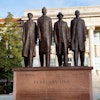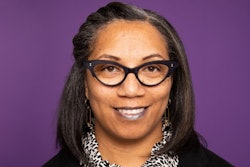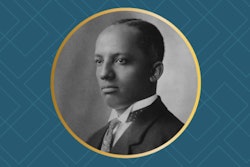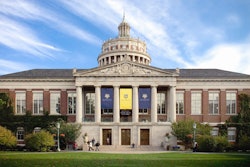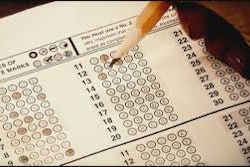Historically Black colleges and universities have a special role in jazz history as institutions that helped set the stage for the rise of jazz education in higher education.
It’s documented that, as early as 1919, Tuskegee University, then known as Tuskegee Institute, offered jazz instruction from the renowned educator and bandleader Leonard L. Bowden. By the early 1930s, Black college jazz bands toured widely to raise funds for and promote their respective schools. Schools, including Alabama State University, Fisk University, Tennessee State University, Kentucky State University and Florida A&M University, fielded bands that contributed to the popularity of the swing era jazz as dance music.
A number of noted musicians who led their own bands and gained recognition as instrumentalists began careers in Black college bands. Legendary among those associated with the early Black college jazz tradition, Erskine Hawkins played trumpet in the famed ’Bama State Collegians of State Teachers College (Alabama State University) and led the group when he and his bandmates took up residency in New York City in 1934 to perform as a professional ensemble.
Eventually, the group relinquished the ’Bama State Collegians name and toured as Erskine Hawkins and His Orchestra. The band is largely remembered for recording the classic “Tuxedo Junction” composition, which Hawkins helped compose.
By the 1940s, the popularity and acceptance of jazz in American culture paved the way for music educators to establish jazz studies degree programs largely in music departments at predominantly White colleges and universities. Since then, despite some resistance from classical music faculty, more than 200 jazz studies degree programs have taken root at U.S. colleges and universities. In the 21st century, colleges and universities represent a critical part of the cultural infrastructure that now cultivates and sustains jazz as a viable art form.
Although fewer than 10 such programs exist at historically Black institutions, jazz performance groups, including small combos, vocal groups and big bands, continue to have an important presence. Two historically Black schools, Howard University and North Carolina Central University (NCCU), offer a master’s program in jazz studies in addition to an undergraduate program. HBCUs also annually organize a number of regional jazz festivals that showcase high school, college, and professional bands and artists, such as the Alcorn State University Jazz Festival.
Jazz educators insist that HBCUs have remained relevant to jazz in American higher education and that their music departments have the potential to host new jazz degree programs. They worry, however, that HBCUs are not doing enough to honor the tradition of innovation that once saw jazz propelled from Black college campuses to the mainstream of World War II-era American pop culture.
